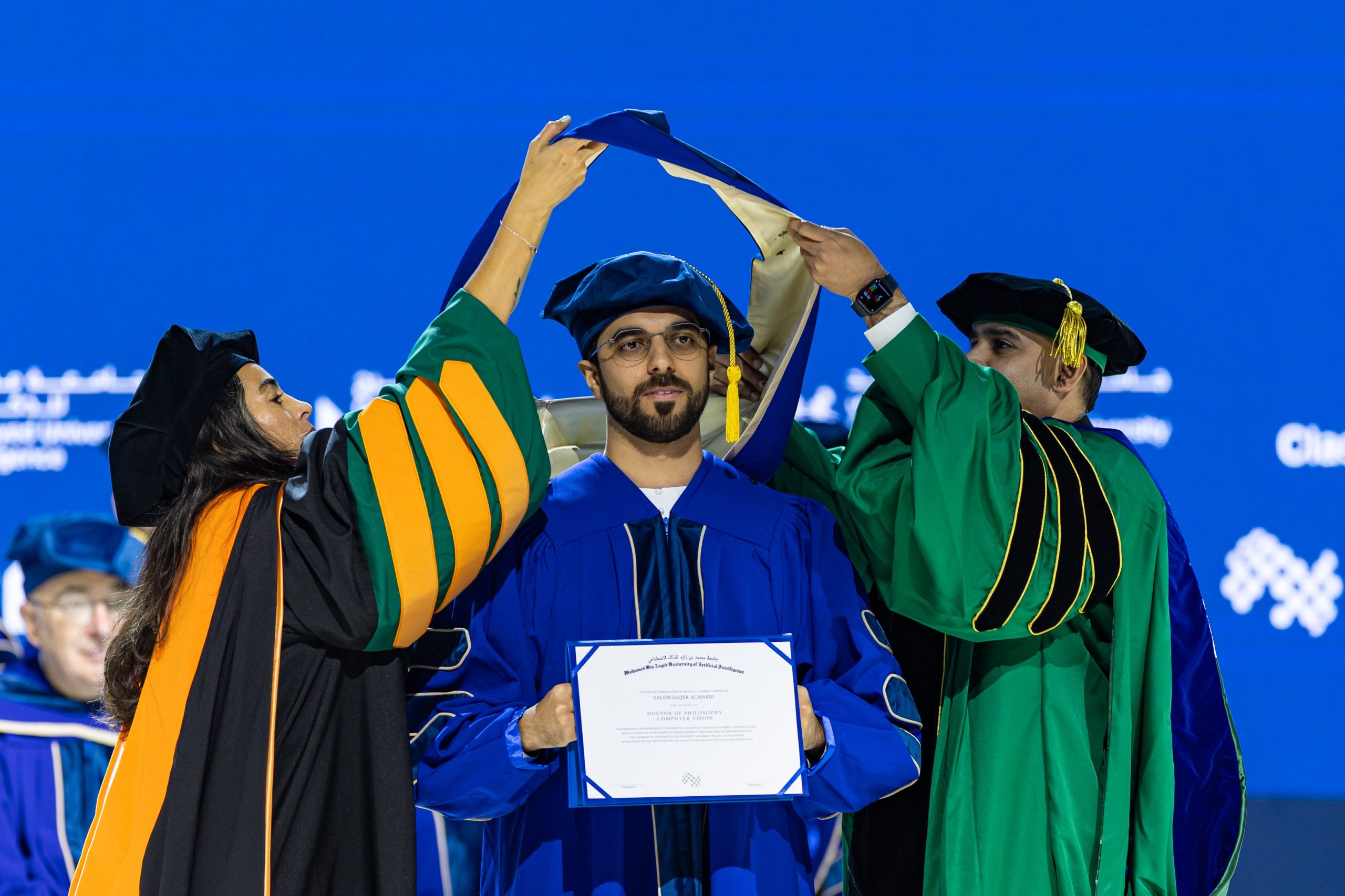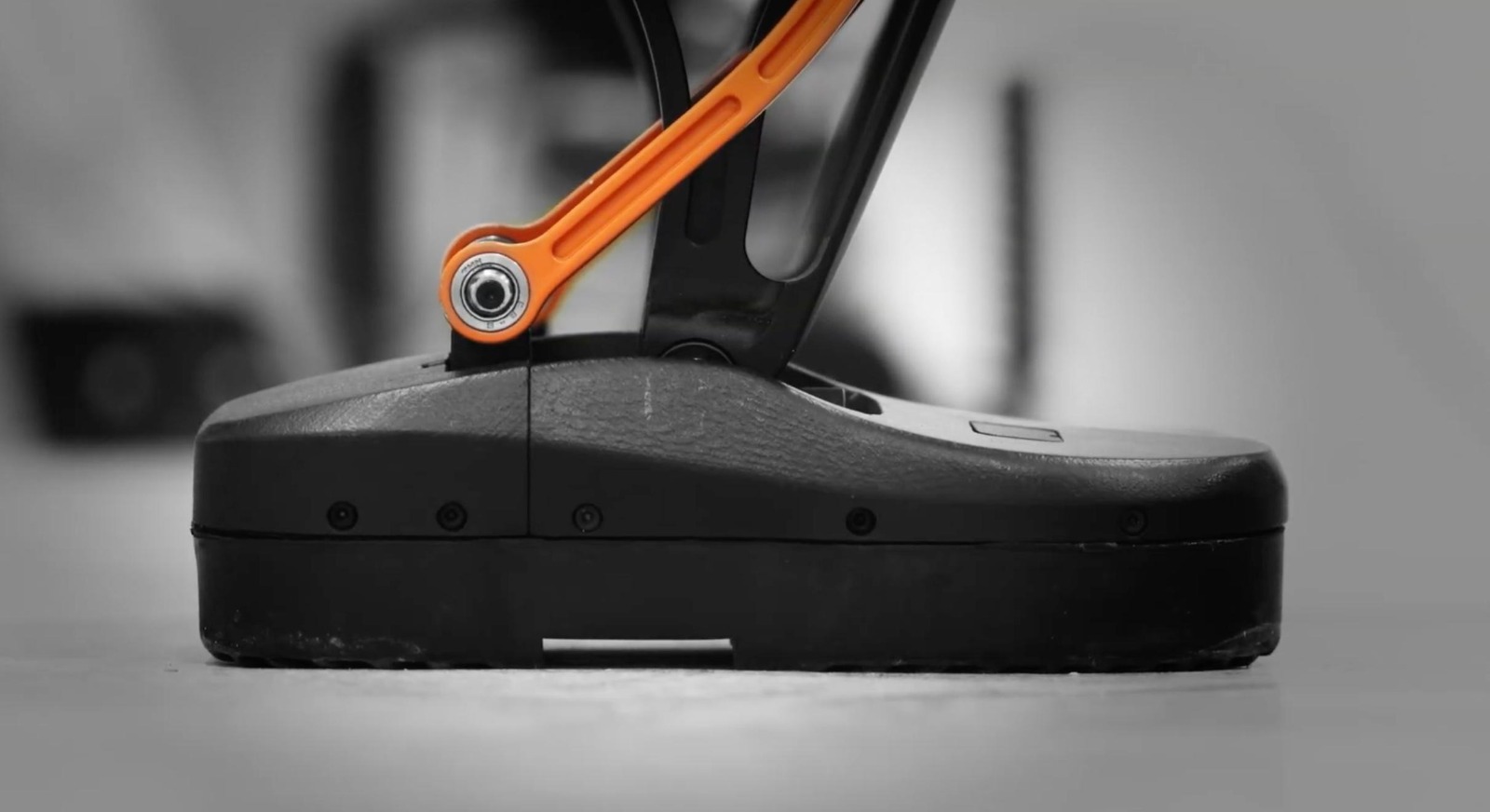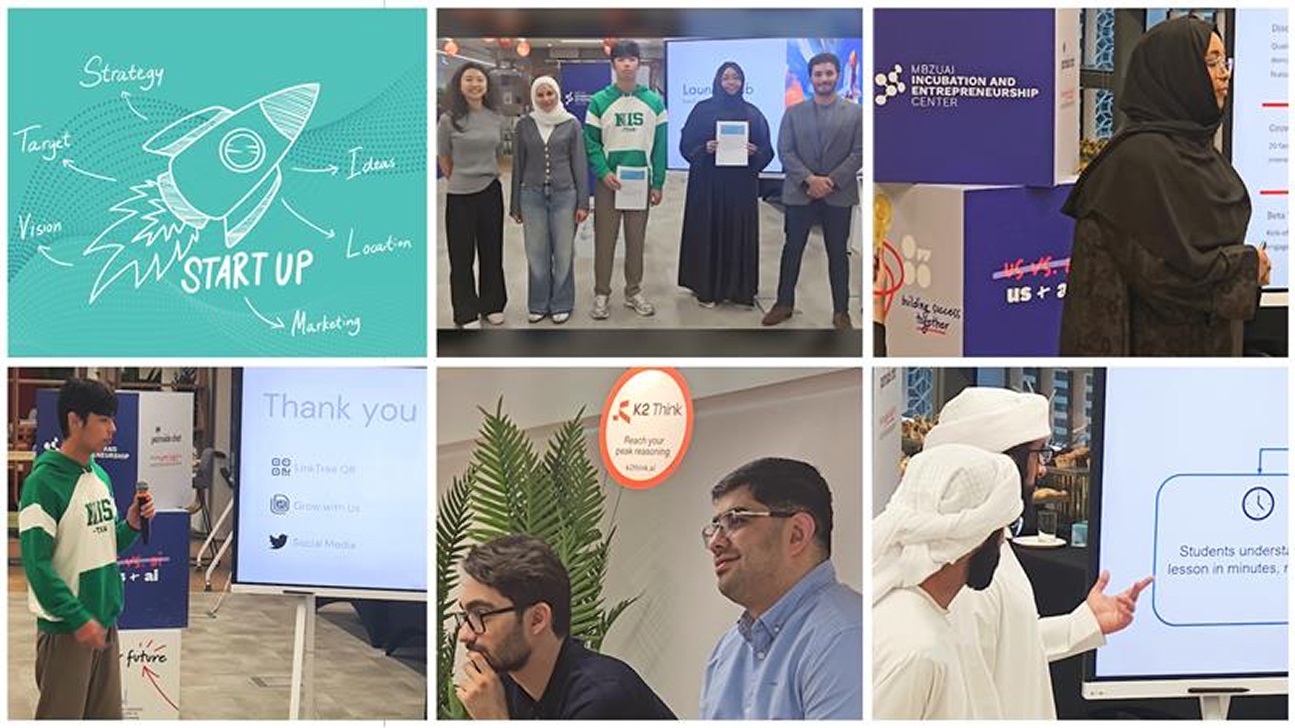Detecting the undetectable: Transforming policing with AI
Driven by a determination not to be outpaced, MBZUAI’s first Emirati Ph.D., Salem AlMarri, has developed a system of video anomaly detection that could revolutionize policing in the UAE.
Thursday, June 26, 2025
Watching his inventor father work on innovative projects at his lab in his childhood home, a younger version of Salem AlMarri wondered whether he would ever get close to matching his achievements.
“I grew up watching him make things that were very new for his time,” he recalls, looking back over his journey through technology. “He developed a computer-like attendance system for police officers back in the 1970s, for example. He created a wind turbine in the 90s that could be assembled without screws and would not harm birds. And he invented a computer system that people with no limbs could work.
“He was always figuring out something new to try.
“It was a personal challenge for me, to at least try to come close to his achievements — to carry on his legacy.”
As the first Emirati Ph.D. graduate from Mohamed bin Zayed University of Artificial Intelligence (MBZUAI), it’s safe to say AlMarri has done that and more.
On study secondment from Dubai Police, AlMarri’s thesis on video anomaly detection (VAD) could potentially “shift the whole paradigm of policing”; helping police forces across the Emirates save lives and prevent crimes.
“Video anomaly detection helps us filter out noise from video and focus on what is truly important,” he says of his work, carried out under the guidance of Karthik Nandakumar, Affiliated Associate Professor of Computer Vision at MBZUAI.
“A person’’s face is important, but anyone can detect a face. Anyone can detect a car number plate. It’s very difficult, however, to detect subtle anomalies where, for example, I could pass by a cashier, and I tell him, ‘Give me the money’ – but in the nicest way possible. A normal camera won’t know what’s happening. It will just see a generous cashier handing money to somebody.
“Video anomaly detection understands subtle movements. It can see that something unusual is happening and can ask the police to attend before waiting for a crime to be reported, or even sometimes before a crime has happened.
“This can be extended to other areas such as accidents, safety-related issues, natural hazards, natural disasters, and more. This could help save people’s lives and prevent crimes from taking place. Even though our policing is superb, VAD could be a huge help in so many ways.”
Fear of being left behind
AlMarri’s journey towards his Ph.D. may have been kick-started by his father’s example several years earlier, but it was his own desire to stay relevant that pushed him towards academic success.
After earning his bachelor’s degree in electronics engineering from the Higher Colleges of Technology in Dubai, AlMarri joined Dubai Police in 2016, where he worked on projects ranging from autonomous drones to service robots; applying technology to real-world challenges. But even as he contributed to the emirate’s smart policing systems, he felt a growing urgency. The UAE was implementing AI at an incredible pace, and AlMarri knew he needed to evolve or risk being left behind.
This urgency led him to pursue a master’s degree in electrical engineering at Rochester Institute of Technology where he had his first experience of studying AI.
“I felt like I was being outpaced and began to panic,” he explains. “Within the police force, our whole department went from being a smart service department to an AI department. I needed to find a way to understand and learn about AI and how to apply it. So, my master’’s thesis explored how we utilize object detection for facial recognition and how we could read emotional expressions.
In 2019, AlMarri obtained his master’s and was recognized as one of the UAE’s up and coming scientists at the Her Highness Sheikha Fatima Bint Mubarak Program for Excellence and Community Intelligence. He won first place in the ‘Science and Future Technology Category’ and was awarded a medal of individual excellence from UAE President, His Highness Sheikh Mohamed bin Zayed Al Nahyan, the then Crown Prince of Abu Dhabi.
However, AlMarri was not content with this. “I still had the feeling that I was being outpaced. I felt I had to find better opportunities for myself, and better opportunities to make a difference.”
Reaching a new level
Enter MBZUAI. Only recently launched at the time, the University was looking for its first cohort of students, and AlMarri was immediately drawn to its offering.
“I had been on an interesting journey to that point,” he says. “I’d learned electronics, I’d done programming, worked on robotics, and started to work on AI. But I’d not had the opportunity to work with a world-class academic team. So, I applied for the computer vision program without hesitation.”
But by his own admission, MBZUAI took him to a new level.
“MBZUAI humbled me,” he says. “I started to develop imposter syndrome. I had won competitions, worked on great projects, but this was something different. The quality of professors in this University is incredible – you won’t be able to find a faculty like this anywhere in the world.”
The key difference for AlMarri, and the primary thing he says he will take away from his MBZUAI experience, is the importance of high-quality research.
“In my previous degrees, I never really understood the true value of research and the importance of publications. Now I know that it can benefit me and benefit the world. MBZUAI helps you to see that and teaches you to deliver excellence – that’s something I really cherish.”
Looking to the future, AlMarri is determined to “focus on what I have obtained from the University” and specialize even further in anomaly detection.
“MBZUAI has given me a unique opportunity to work on a project that has never existed before, and I want to keep doing this,” he says. “I want to distinguish myself through this work and deliver research that can have a strong impact – especially as an Emirati.
“You see how the UAE has evolved over the years, and it encourages you to keep trying, keep striving in order to be on the frontlines of what’s coming next. I never wanted to be left behind by the changes taking place, and MBZUAI has given me the opportunity to stay ahead and do something new and meaningful for the country.”
AlMarri is one of the record 20 Emirati graduates (12 men, eight women) from the Class of 2025 – all of whom share his wish to become homegrown AI leaders.
Related
MBZUAI and Minerva Humanoids announce strategic research partnership to advance humanoid robotics for applications in the energy sector
The partnership will facilitate the development of next-generation humanoid robotics tailored for safety-critical industrial operations.
Read MoreMBZUAI's Launch Lab equips alumni and students with practical startup tools
The six-week pilot program brought alumni and students together to turn early startup ideas into tangible ventures.
- launch lab ,
- alumni relations ,
- startups ,
- alumni ,
- entrepreneurship ,
AI and the silver screen: how cinema has imagined intelligent machines
Movies have given audiences countless visions of how artificial intelligence might affect our lives. Here are some.....
- science fiction ,
- cinema ,
- art ,
- fiction ,
- artificial intelligence ,
- AI ,


